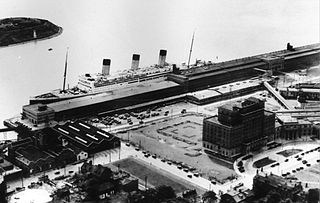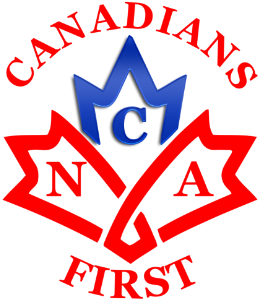Toula Drimonis | |
|---|---|
 | |
| Occupation(s) | Journalist and author |
| Notable work | We, the Others (2022 book) |
Toula Drimonis is a Canadian journalist and author of the 2022 book We, the Others.
Toula Drimonis | |
|---|---|
 | |
| Occupation(s) | Journalist and author |
| Notable work | We, the Others (2022 book) |
Toula Drimonis is a Canadian journalist and author of the 2022 book We, the Others.
Drimonis was born to a parents who emigrated from Greece to Quebec in the 1960s. [1] [2] [3]
Drimonis is a journalist and social commentator. [1] She is the author of We, the Others which was described in The Halifax Examiner as "part memoir, part history, part manifesto". [4] The book is about the political discourse in Canada around immigration. [4] The book was released in September 2022. [1]

Pierre Laporte was a Canadian lawyer, journalist and politician. He was deputy premier of the province of Quebec when he was kidnapped and murdered by members of the Front de libération du Québec (FLQ) during the October Crisis.

Events from the year 1947 in Canada.

My Big Fat Greek Wedding is a 2002 romantic comedy film directed by Joel Zwick and written by Nia Vardalos. The film stars Vardalos, John Corbett, Lainie Kazan, Michael Constantine, Gia Carides, Louis Mandylor, Andrea Martin, and Joey Fatone. It follows a young Greek-American woman who falls in love with a non-Greek and struggles to get her family to accept him while she comes to terms with her heritage and cultural identity.

Pier 21 is a former ocean liner terminal and immigration shed from 1928 to 1971 in Halifax, Nova Scotia, Canada. Nearly one million immigrants came to Canada through Pier 21, and it is the last surviving seaport immigration facility in Canada. The facility is often compared to the landmark American immigration gateway Ellis Island. The former immigration facility is now occupied by the Canadian Museum of Immigration, the Nova Scotia College of Art and Design as well as various retail and studio tenants.
In politics, a dog whistle is the use of coded or suggestive language in political messaging to garner support from a particular group without provoking opposition. The concept is named after ultrasonic dog whistles, which are audible to dogs but not humans. Dog whistles use language that appears normal to the majority but communicates specific things to intended audiences. They are generally used to convey messages on issues likely to provoke controversy without attracting negative attention.
Lebanese Canadians are Canadians of Lebanese origin. According to the 2016 census there were 219,555 Canadians who claimed Lebanese ancestry, showing an increase compared to the 2006 census, making them by far the largest group of people with Arabic-speaking roots. As of the 2016 census, they are also one of the largest communities of Asian origin in the country.
According to the 2021 Canadian census, immigrants in Canada number 8.3 million persons and make up approximately 23 percent of Canada's total population. This represents the eighth-largest immigrant population in the world, while the proportion represents one of the highest ratios for industrialized Western countries.
Canadian identity refers to the unique culture, characteristics and condition of being Canadian, as well as the many symbols and expressions that set Canada and Canadians apart from other peoples and cultures of the world. Primary influences on the Canadian identity trace back to the arrival, beginning in the early seventeenth century, of French settlers in Acadia and the St. Lawrence River Valley, and of English, Scottish and Irish settlers in Newfoundland and the Maritimes, the British conquest of New France in 1763, the migration of United Empire Loyalists to Upper Canada and New Brunswick, and the ensuing dominance of French and British culture in the gradual development of both an imperial and national identity.
Anti-Quebec sentiment is a form of prejudice which is expressed toward the government, culture, and/or the francophone people of Quebec. This prejudice must be distinguished from legitimate criticism of Quebec society or the Government of Quebec, though the question of what qualifies as legitimate criticism and mere prejudice is itself controversial. Some critics argue that allegations of Quebec bashing are sometimes used to deflect legitimate criticism of Quebec society, government, or public policies.

Michel C. Auger is a Québécois journalist. He is a political columnist for Le Soleil, though until April 2006 he worked for Le Journal de Montréal. He is also the former president of the Fédération professionelle des journalistes du Québec (FPJQ).

Douglas Murray is a British author and political commentator. He founded the Centre for Social Cohesion in 2007, which became part of the Henry Jackson Society, where he was associate director from 2011 to 2018. He is currently an associate editor of the conservative British political and cultural magazine The Spectator.
Criticism of multiculturalism questions the ideal of the maintenance of distinct ethnic cultures within a country. Multiculturalism is a particular subject of debate in certain European nations that are associated with the idea of a nation state. Critics of multiculturalism may argue against cultural integration of different ethnic and cultural groups to the existing laws and values of the country. Alternatively critics may argue for assimilation of different ethnic and cultural groups to a single national identity.
Multiculturalism in Canada was officially adopted by the government during the 1970s and 1980s. The Canadian federal government has been described as the instigator of multiculturalism as an ideology because of its public emphasis on the social importance of immigration. The 1960s Royal Commission on Bilingualism and Biculturalism is often referred to as the origin of modern political awareness of multiculturalism, resulting in Canada being one of the most multicultural nations in the world. The official state policy of multiculturalism is often cited as one of Canada's significant accomplishments, and a key distinguishing element of Canadian identity and Canadian values.
Populism in Canada has been part of the country's political culture through its history and across the political spectrum. Populist parties and movements have included the Canadian social credit movement which achieved electoral strengths in Western Canada and to some extent in Quebec in the early to mid 20th century, and the Reform Party of Canada which became the largest conservative party in Parliament from a base in Western Canada in the 1990s.
Racism in Canada traces both historical and contemporary racist community attitudes, as well as governmental negligence and political non-compliance with United Nations human rights standards and incidents in Canada. Contemporary Canada is the product of indigenous First Nations combined with multiple waves of immigration, predominantly from Europe and in modern times, from Asia.

Rebel News is a Canadian far-right political and social commentary media website operated by Rebel News Network Ltd. It has been described as a "global platform" for the anti-Muslim ideology known as counter-jihad. It was founded in February 2015 by former Sun News Network personalities Ezra Levant and Brian Lilley.

Sophie Labelle is a transgender Canadian cartoonist, public speaker, and writer. She is known for her webcomic Assigned Male, which draws upon her experiences as a transgender child. She is an activist in the transgender rights movement, and speaks on the subjects of transgender history and transfeminism.
Stephen Edward Kimber is a Canadian journalist, editor and broadcaster and instructor at the University of King's College in Halifax, Nova Scotia.

The National Citizens Alliance was a minor federal political party in Canada, registered with Elections Canada from 2014 to 2017 and from 2019 to 2023. It was founded and led by perennial candidate Stephen Garvey, a proponent of far-right conspiracy theories. The party had been described by critics as alt-right, white nationalist, and Islamophobic.
The True North Centre for Public Policy is a Canadian media outlet that simultaneously describes itself as a "media company", an "advocacy organization" and as a "registered charity with the government of Canada." It operates a digital media arm known simply as True North.